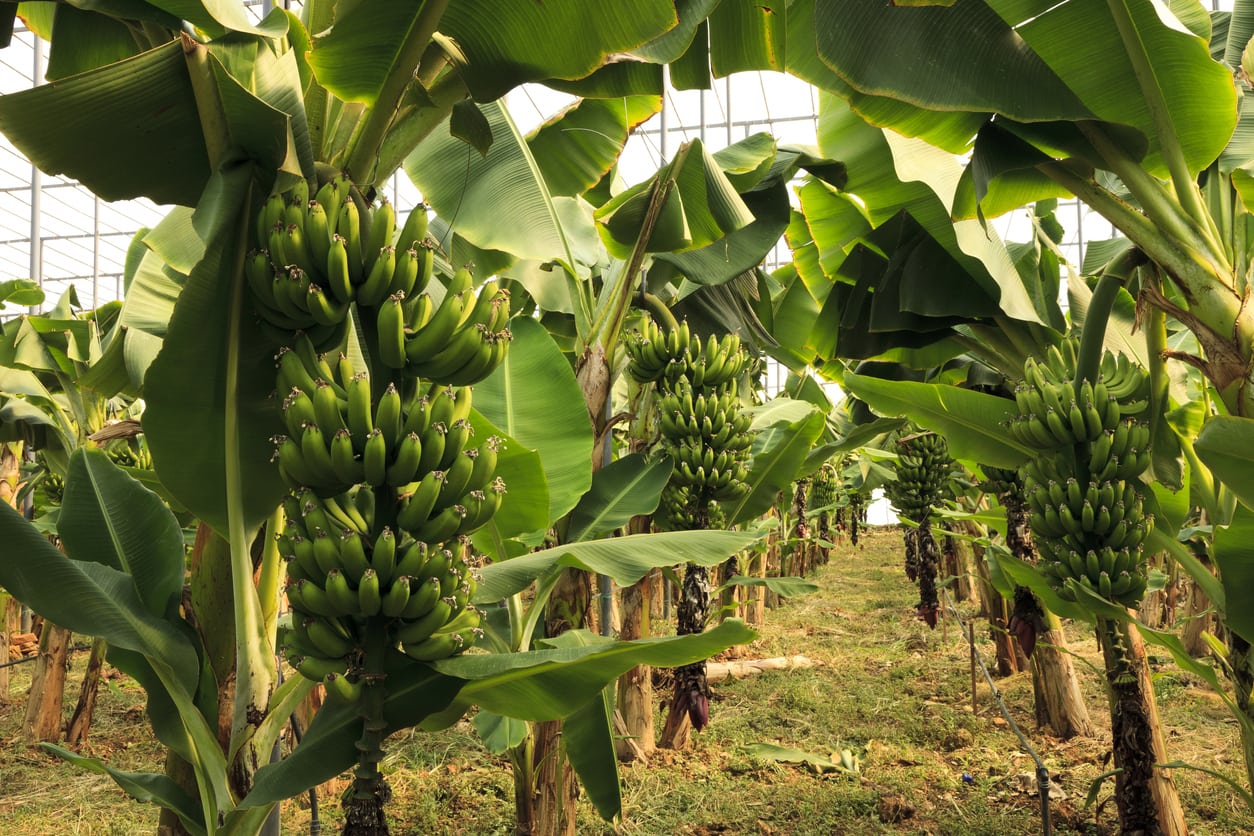Zone 9 Banana Trees – Choosing Banana Plants For Zone 9 Landscapes


Gardeners in warm regions can rejoice. There are numerous varieties of banana plants for zone 9. These tropical plants need lots of potassium and plenty of water to produce the sweet fruits. They also need the high temperatures available in zone 9. Continue reading for some tips on growing bananas in zone 9 and make your neighbors jealous with bumper crops of the glorious yellow fruit.
Considerations for Banana Plants for Zone 9
Bananas are native to the tropical and semi-tropical areas of the world. The plants come in several sizes, including dwarf varieties. Can you grow bananas in zone 9? Outside of the hardy varieties, bananas are suited for United States Department of Agriculture zones 7 to 11. This puts zone 9 gardeners right at the middle of the range. Zone 9 banana trees will thrive, especially with some thoughtful site conditions and judicious care.
Banana trees range in size from 30-foot (9 m.) tall specimens to the dwarf Cavendish, which is small enough to grow indoors. There are also some red species that thrive in zone 9.
Most zone 9 banana trees need full sun and high temperatures. A few can withstand light frosts, some are not bothered by frost at all and still others will only be foliage plants, producing no fruit. The form of banana trees is elegant and tropical, but if you require fruit, stay safely with plants that can tolerate zone 9 winter temperatures.
Zone 9 Banana Trees
Numerous bananas can grow in zone 9. Once you decide what size you want and have an appropriate site for the tree, it is time to consider the variety. Each has unique characteristics in not only the plant but also the fruit. Here are some that are perfect for zone 9 gardeners:
Abyssian Giant – Very cold hardy and attractive foliage. NO fruit, but very ornamental.
Apple Banana – Really does taste like apples! Medium sized plants with finger bananas.
Gardening tips, videos, info and more delivered right to your inbox!
Sign up for the Gardening Know How newsletter today and receive a free copy of our e-book "How to Grow Delicious Tomatoes".
Chinese Yellow Banana – Shrub-like form with huge leaves. Noted for its large yellow flowers.
Cliff Banana – Attractive red blooms and red-brown fruit. This banana does not produce suckers.
Dwarf Cavendish – Prolific fruit producer, cold hardy and small enough for containers.
Dwarf Red Banana – Dark red, sweet fruit. Deeply red trunk and glossy green leaves.
Ice Cream Banana – Stems and leaves are covered in silvery powder. Extremely sweet white flesh in fruit.
Pineapple Banana – Yep, tastes a bit like a pineapple. Medium sized tree with large fruit.
Thousand Finger Banana – Can produce fruit year round with bite-sized fruits.
Tips on Growing Bananas in Zone 9
Many banana trees can be grown in partial sun, but for best production, fruiting varieties should be sited in full sun. Banana trees need well-draining, fertile, moist soil in an area protected from cold snaps and wind.
Remove suckers to allow the main stems the energy to produce. Use organic mulch around the base of the tree to protect the roots. If a tree gets winter killed to the ground, it will usually take another year before it can produce fruit.
Banana trees need a lot of potassium. Wood ash is a good natural source of this important nutrient. They are also prolific feeders and water hogs. Fertilize at the beginning of the growing season and every month. Suspend feeding in winter to allow the plant to rest and avoid new growth that is more susceptible to cold.

Bonnie Grant is a professional landscaper with a Certification in Urban Gardening. She has been gardening and writing for 15 years. A former professional chef, she has a passion for edible landscaping.